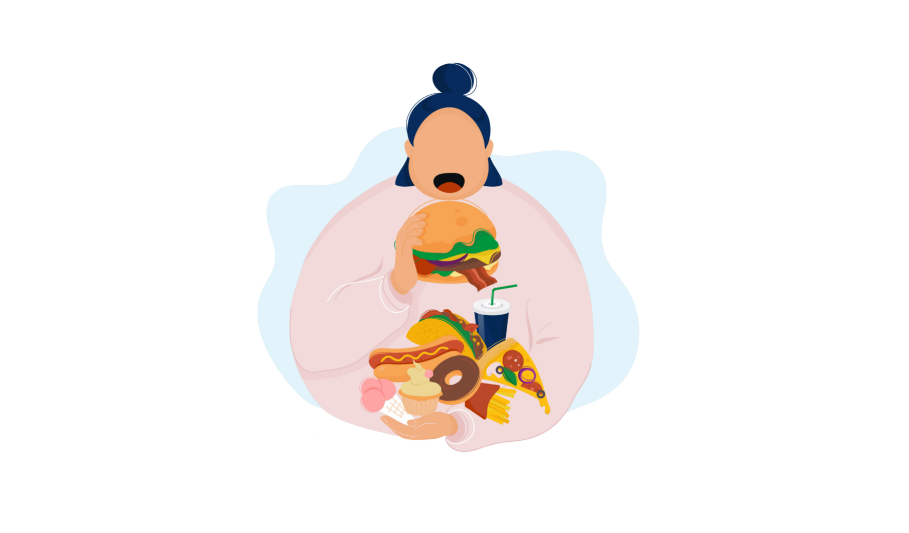It is easy to overeat.
This is so simple that we don’t realize it.
We are caught up in the moment and enjoy the taste of the food, not paying attention to the amount we eat. We overeat and become uncomfortable before we realize it.
Sometimes we eat even when not hungry. We eat when we are bored. It can be to counter another emotion like anxiety or sadness. Sometimes we eat because it’s in front of us.
It’s not surprising that eating is a fun activity. Delicious food is one of the most pleasurable things we do.
Overeating can have serious health effects on our longevity and well-being.
Overeating and Overweight
It might seem that the relationship between overeating habitually and weight gain is obvious: If you eat too much, you will gain weight. The truth is more complex.
What you eat is more important than how much you consume .
It is a mistake to compare “calories consumed” and “calories burned” because not all calories are created equal. The effects of different types of food on the body are varied.
Overeating carbohydrates and fats can increase fat mass, but eating protein may have the opposite effect.
While eating large quantities of fresh fruit or steamed veggies won’t cause you to gain weight, it’s not what most people think about when they hear the term “overeating”.
Overeating fattening foods such as hamburgers, French fries, and delicious pastries will cause you to gain more weight.
Obesity & Chronic Diseases
Overeating is not the end of the story. Overeating can lead to weight gain. This increases your risk of other diseases.
Obesity can cause or worsen chronic conditions such as:
- Cardiovascular Disease
- Type 2 diabetes
- High blood pressure
- Stroke
- Arthritis
- Movement disabilities
- Gallbladder disease
- Pancreatitis
- Liver disease
- Sleep disorders
- Infectious diseases
- Cancer
Numerous large-scale studies confirm a significant link between elevated BMI, and cancer. The Million Women Study revealed, for instance, a significant increase in cancer risk for 10 out of 17 common cancers.
- endometrial cancer
- Esophageal adenocarcinoma
- multiple myeloma
- kidney cancer
- leukemia
- pancreatic cancer
- breast cancer
- non-Hodgkin lymphoma
- ovarian cancer
- colorectal cancer
- All types cancer
Eating too much can affect your mental health.
Obesity might increase the risks of cognitive impairment and neurodegenerative diseases (dementia, Alzheimer’s and Parkinson’s).
Obesity and overeating are often linked to depression, anxiety and other mood disorders.
Consider talking to a nutritionist if you’re struggling with an overeating problem. You can also seek help from a mental-health therapist. You can avoid or alleviate other health problems if you address your overeating issue as soon as possible.







